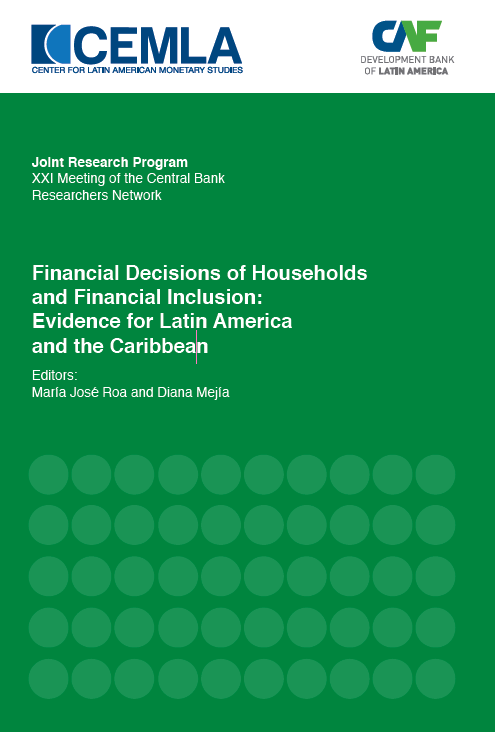Mostrar el registro sencillo del ítem
RED 2011: Financial services for development: promoting access in Latin America (chapter one)
| dc.contributor.author | Sanguinetti, Pablo | |
| dc.contributor.author | Arreaza, Adriana | |
| dc.contributor.author | Rodríguez, Pedro | |
| dc.contributor.author | Álvarez, Fernando | |
| dc.contributor.author | Ortega, Daniel | |
| dc.contributor.author | Penfold, Michael | |
| dc.coverage.spatial | América Latina y el Caribe | en_US |
| dc.date.accessioned | 2016-09-22T20:58:59Z | |
| dc.date.available | 2016-09-22T20:58:59Z | |
| dc.date.issued | 2011-04 | |
| dc.identifier.citation | Sanguinetti, P., Arreaza, A., Rodríguez, P., Álvarez, F., Ortega, D., & Penfold, M. (2011, April). RED 2011: Financial services for development: promoting access in Latin America (chapter one). Bogotá: CAF. Retrieved from https://scioteca.caf.com/handle/123456789/942 | en |
| dc.identifier.issn | 980-6810-01-5 | |
| dc.identifier.uri | https://scioteca.caf.com/handle/123456789/942 | |
| dc.description.tableofcontents | This publication also highlights the development of microfinance institutions (MFI) and their significant contribution towards bringing these services closer to large segments of the population and microenterprises in the region. The “microcredit revolution” is based on developing innovations that turn historically excluded individuals into viable credit candidates, representing a paradigm change in the business of providing financial services. MFI combine elements of traditional banking with knowledge of informal financial mechanisms. To a certain degree, MFI represent a “market” solution to the immense demand unmet by the traditional financial system. It is interesting to note that the Latin American microfinance model has allowed MFI high rates of growth and self-sustainment from a financial point view without negative preconceptions, which have continued maintaining important levels of credit aimed at poorer clients. With the seventh edition of the Report on Economics and Development, CAF seeks to contribute to the debate on the role that finance, particularly access to financial services, plays in economic development. Various studies show that the development of financial markets is a factor in promoting long-term economic growth and is the result, in part, of the rise in productivity due to the reallocation of capital (and human talent) towards firms and households who have worthy projects but nonetheless face restrictions accessing the financial system, especially credit. | en_US |
| dc.language.iso | en | en_US |
| dc.publisher | CAF | en_US |
| dc.rights | CC-BY-NC | es_ES |
| dc.rights.uri | http://creativecommons.org/licenses/by-nc/4.0/ | es_ES |
| dc.subject | Desarrollo | en_US |
| dc.subject | Sector financiero | en_US |
| dc.title | RED 2011: Financial services for development: promoting access in Latin America (chapter one) | en_US |
| dc.type | bookPart | en_US |
| dc.publisher.city | Bogotá | en_US |
Ficheros en el ítem
Este ítem aparece en la(s) siguiente(s) colección(ones)
-
4.1 Reporte de Economía y Desarrollo (RED)
Serie anual que aborda los temas críticos para el desarrollo sostenible regional. Con la divulgación de estos contenidos se espera contribuir al diseño de las políticas públicas de los países de la región.






